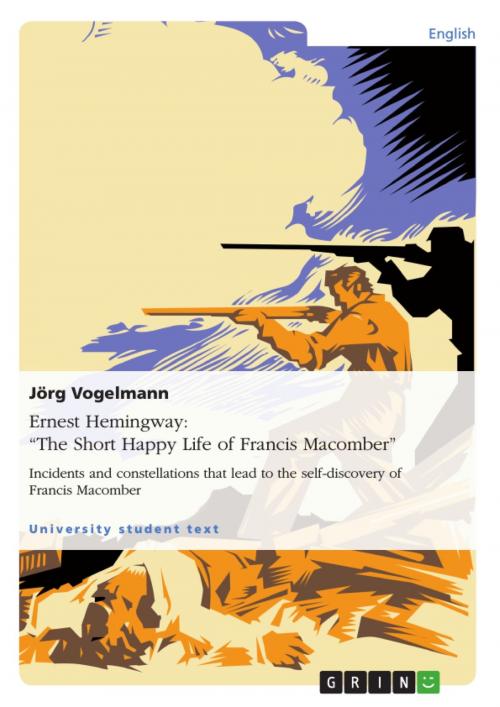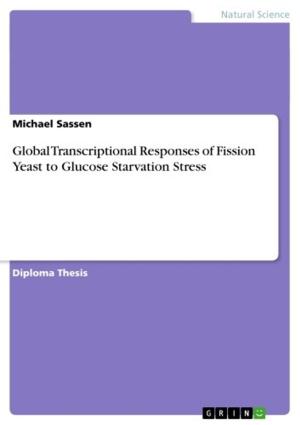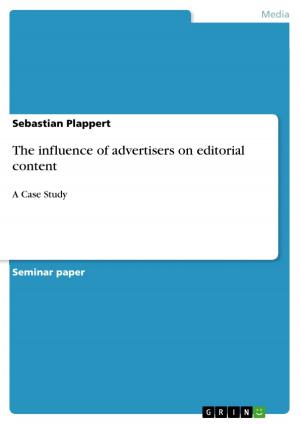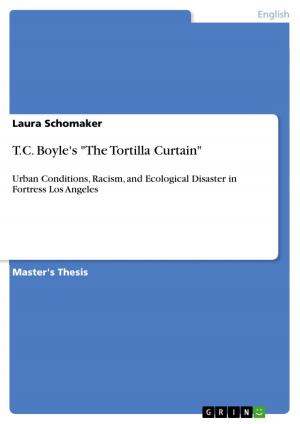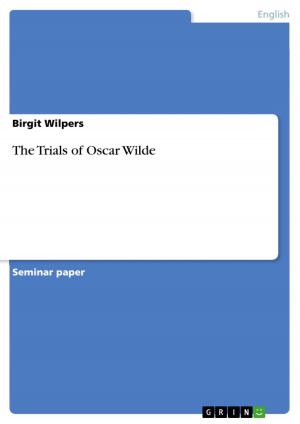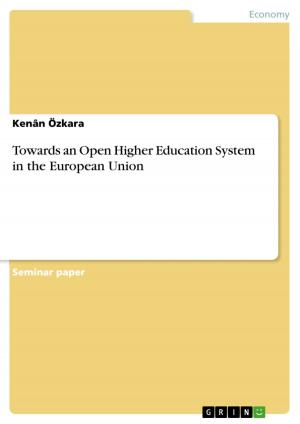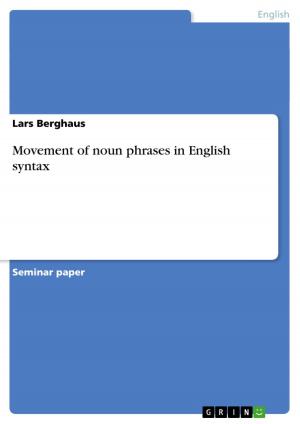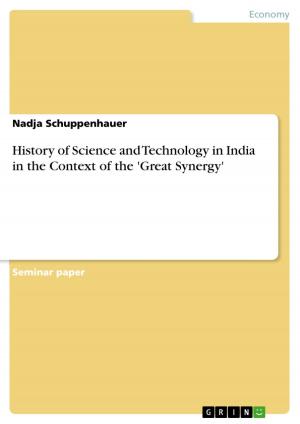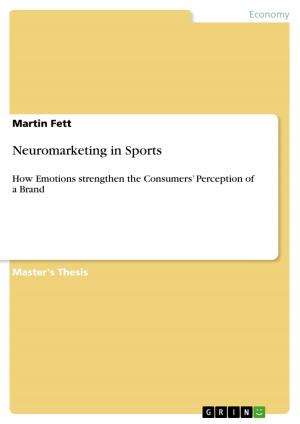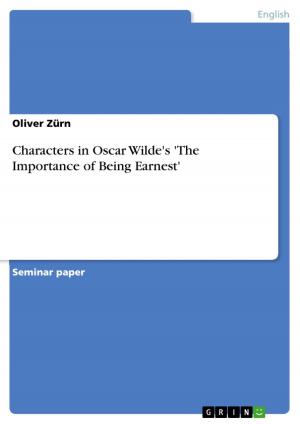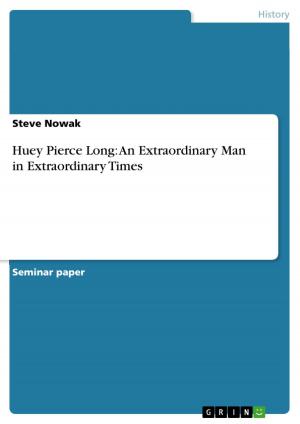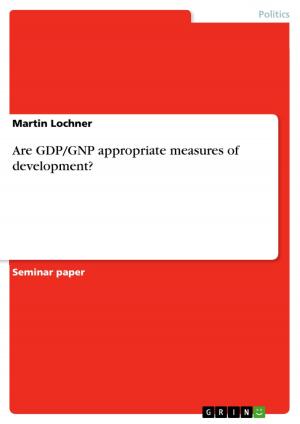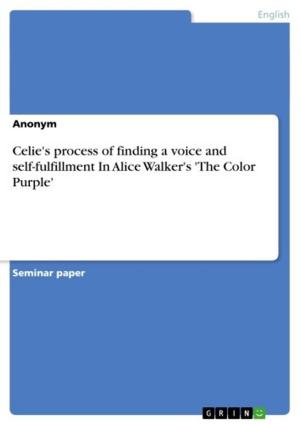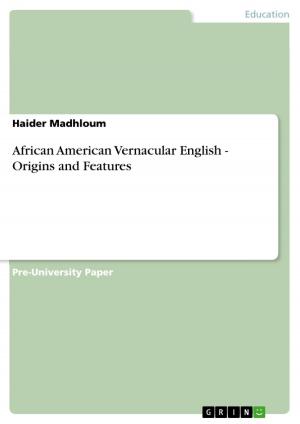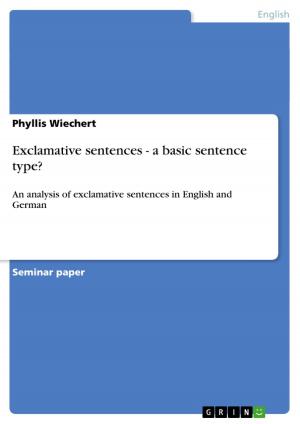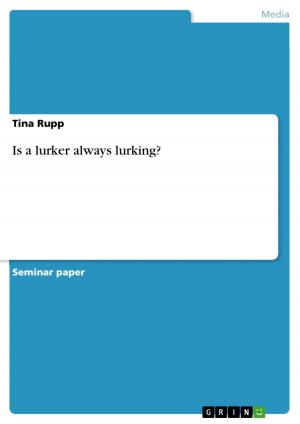Ernest Hemingway: 'The Short Happy Life of Francis Macomber'
Incidents and constellations that lead to the self-discovery of Francis Macomber
Nonfiction, Entertainment, Drama, Anthologies| Author: | Jörg Vogelmann | ISBN: | 9783640152971 |
| Publisher: | GRIN Publishing | Publication: | September 2, 2008 |
| Imprint: | GRIN Publishing | Language: | English |
| Author: | Jörg Vogelmann |
| ISBN: | 9783640152971 |
| Publisher: | GRIN Publishing |
| Publication: | September 2, 2008 |
| Imprint: | GRIN Publishing |
| Language: | English |
Seminar paper from the year 2004 in the subject American Studies - Literature, grade: 2,0, University of Stuttgart (Institut für Literaturwissenschaft: Anglistik/Amerikanistik), course: Literary Studies - G2-Seminar 'The American Short Story', 11 entries in the bibliography, language: English, abstract: 'The Short Happy Life of Francis Macomber' is among Ernest Hemingway's most impressive short stories. His famous 'Iceberg Theory' (he thereby meant that in his texts, only a short part of the overall content is actually written down, the rest of it stands between the lines) has often caused confusion in reading his short stories and his omissions have tended to obscure their thematic implications - 'The Short Happy Life of Francis Macomber', however, is embarrassing by its riches. The exciting story is made up of manifold topics being key themes of the literary period of modernism: The main theme of the story, the self-discovery of Francis Macomber, correlates with modernist questions like: 'What am I in it? - What's my function in the universe? - What are the limits of knowledge? - What is real?' Another topic of modernism is the breaking up of traditional values such as the development of a new relationship between man and woman, that is, again, a central theme in Hemingway's text. Thus, it becomes clear that the topics in the story are also linked to the time the author has lived in.
Seminar paper from the year 2004 in the subject American Studies - Literature, grade: 2,0, University of Stuttgart (Institut für Literaturwissenschaft: Anglistik/Amerikanistik), course: Literary Studies - G2-Seminar 'The American Short Story', 11 entries in the bibliography, language: English, abstract: 'The Short Happy Life of Francis Macomber' is among Ernest Hemingway's most impressive short stories. His famous 'Iceberg Theory' (he thereby meant that in his texts, only a short part of the overall content is actually written down, the rest of it stands between the lines) has often caused confusion in reading his short stories and his omissions have tended to obscure their thematic implications - 'The Short Happy Life of Francis Macomber', however, is embarrassing by its riches. The exciting story is made up of manifold topics being key themes of the literary period of modernism: The main theme of the story, the self-discovery of Francis Macomber, correlates with modernist questions like: 'What am I in it? - What's my function in the universe? - What are the limits of knowledge? - What is real?' Another topic of modernism is the breaking up of traditional values such as the development of a new relationship between man and woman, that is, again, a central theme in Hemingway's text. Thus, it becomes clear that the topics in the story are also linked to the time the author has lived in.
